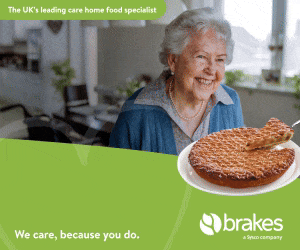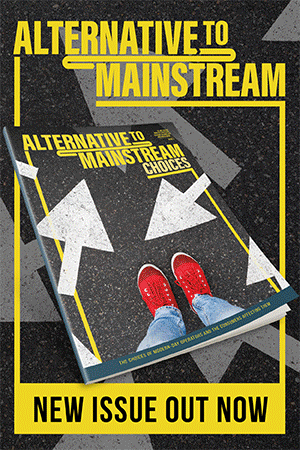Action week should start dementia dining conversations, says charity
Vegetarian for Life says the upcoming Dementia Action Week should be used as an opportunity to shape conversations about dementia dining.

Joe Barson, interim head of research and policy at charity Vegetarian for Life, says the upcoming Dementia Action Week, which runs from 16 to 22 May, is the ideal time to consider how we best support the diets of those with dementia.
Beliefs and values are central to our identities. They allow us to define who we are and how we relate to the world. However, this aspect of our personalities may be challenged by the onset of dementia, with people becoming unable to remember or articulate their beliefs.
This year, Dementia Action Week coincides with National Vegetarian Week. VfL argues that this is the perfect time to reflect on supporting the ethical beliefs of those receiving care. Dietary practices, such as veganism and vegetarianism, are often linked to ethical beliefs. Those practising them may be motivated by concerns for animal welfare or the environment. Staying meat-free allows individuals to express deeply held convictions.
However, case studies in a recent inquiry report published by the All-Party Parliamentary Group on Veganism and Vegetarianism suggest that those with dementia may struggle to maintain these practices in care. Being unable to remember their beliefs, people struggled to verbalise their preferences and were not fed according to their beliefs.

Joe Barson, of Vegetarian for Life
Unfortunately, the report documented instances where those with dementia, who had lived meat-free for much of their lives, were regularly receiving meat. This emphasises the importance of care caterers being aware of and supporting the preferences of people receiving care. By doing so, they respect the person’s past wishes and the choices they made.
Research on dementia has also started to suggest that the onset of dementia does not prevent a person from holding ethical values. By actively supporting choices in line with a person’s known values, care providers may be supporting individuals to retain central elements of their personhood.
There is a growing conversation about how to best document and protect an individual’s values as they age. Northern Ireland has launched a consultation on advanced care planning. They are developing practices that would allow people to document what matters to them, guiding carers around their physical, ethical and spiritual needs.
Elsewhere VfL has produced a Self-Advocacy Guide containing a template Statement of Wishes, encouraging people to clarify their dietary needs. The statement can be used to document the views and values that a person wishes to live by. Draft statements are also provided by Alzheimer’s Society and the Mental Welfare Commission in Scotland.
When values are documented, it is important that care providers reference these views and act accordingly. To support providers, VfL has produced a Memory Care Pledge, encouraging people to acknowledge individuals’ dietary beliefs. The pledge consists of five simple good practice points that care establishments can follow to ensure that vegan and vegetarian residents have choices that uphold their ethical beliefs.
Dementia Action Week can and should be a time to better support those with limited capacity to maintain beliefs and values that define them as people.
VfL campaigns to improve the quality of life for older vegans and vegetarians in the UK. For more information on the VfL Memory Care Pledge, visit vegetarianforlife.org.uk/pages/pledge








